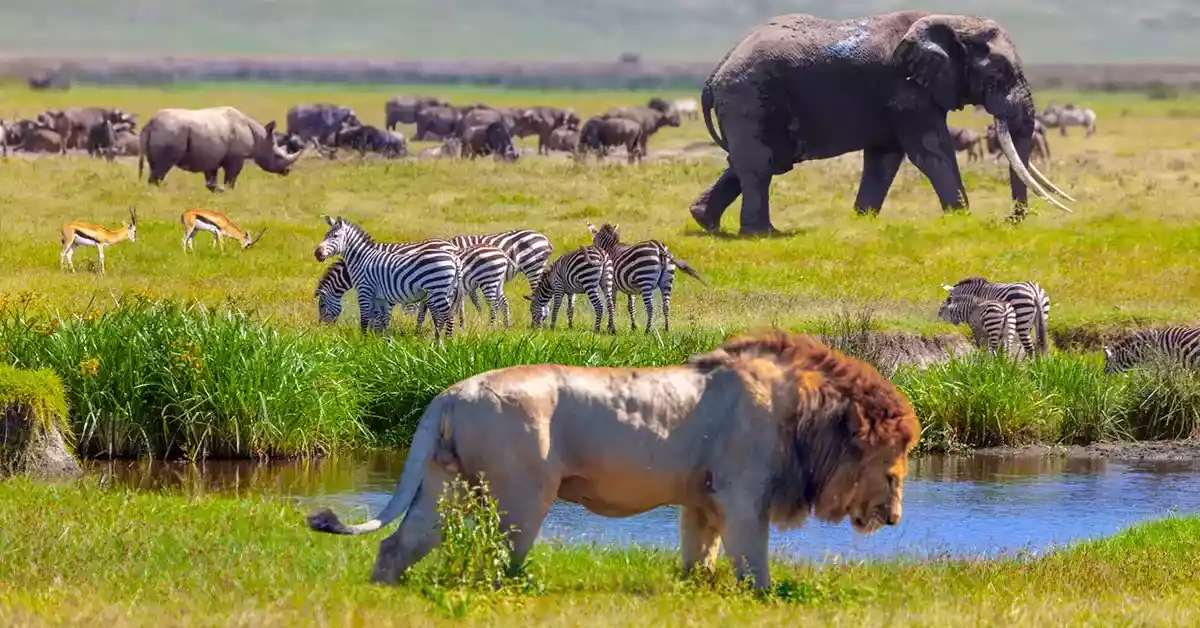
COMMUNITIES that live in wildlife areas have been urged to be proactive and take ownership of conservation projects in order to reap benefits of cohabiting with wildlife in their areas, the African Wildlife Foundation (AWF) has said.
“For over 60 years, AWF has championed for African-led conservation on the continent. While Africa's natural heritage and biodiversity is a global asset, it's ultimately owned by Africans and thus the responsibility of Africans must be to spearhead and own the conservation narrative,” the foundation said in a statement yesterday.
“Placing economic development and environmental conservation as an option is a false choice. Functional, healthy ecosystems are critical for the long-term stability and prosperity of the continent. Negative development outcomes are driven; not by a lack of options, but by a failure to invest in the hard decisions around land and natural resource use, planning and negotiated trade-offs.
“Biodiversity conservation and climate change are two sides of the same coin. Anticipating and dealing with climate change impacts can help to deter biodiversity loss. Protecting biodiversity can support climate change mitigation and adaptation efforts. It is thus necessary to address biodiversity loss to confront climate change.”
Despite progress to improve ecosystem health, AWF said biodiversity within and beyond protected areas continues to decline, questioning the effectiveness of mainstream conservation approaches.
“In marine protected areas, for instance, restrictive areas managed by governments seem to be only effective when located in more economically developed countries with effective legal frameworks whereas bottom-up approaches need strong community leadership and support from NGOs and private entities to succeed,” AWF said.
“Higher investment does not always guarantee protection as more conservation aid results in small but important deforestation spill overs. Protected areas need to anticipate short-term compensation or livelihood alternatives by enabling institutional and policy environments that do not undermine local land ownership, as well as by guaranteeing local involvement in design and implementation and ensuring benefits are invested locally.”
Kariba-based wildlife conservation and seasoned tour guide Jesse Zvikonyaukwa said community property rights over natural resources could create incentives for local protection of wildlife, and promote monitoring and enforcement of wildlife projects.
- AWF and Nature's Best Photography award winners announced
- Farmers in Mbire find innovative way to reduce human-wildlife conflict
- Hyenas hunted in Ethiopia after spike in attacks
- AWF puts 10-year wildlife conservation strategy in motion
Keep Reading
“When supported by conservation policies and institutions, common land property, alongside customary rules and sanctions typically explain successful forest conservation outcomes, such as in the case of tropical community conservation areas. For instance, empowered local fishermen in these areas are more likely to comply with conservation regulations when engaged in decision-making than those fishermen that have lost control over marine resources,” Zvikonyaukwa told NewsDay in an interview.
“The integration of indigenous and local knowledge and increasing public participation, especially women, in protected areas’ decision-making are also key determinants for the success of conservation efforts,” he said.
- Follow Obert on Twitter@osiamilandu










